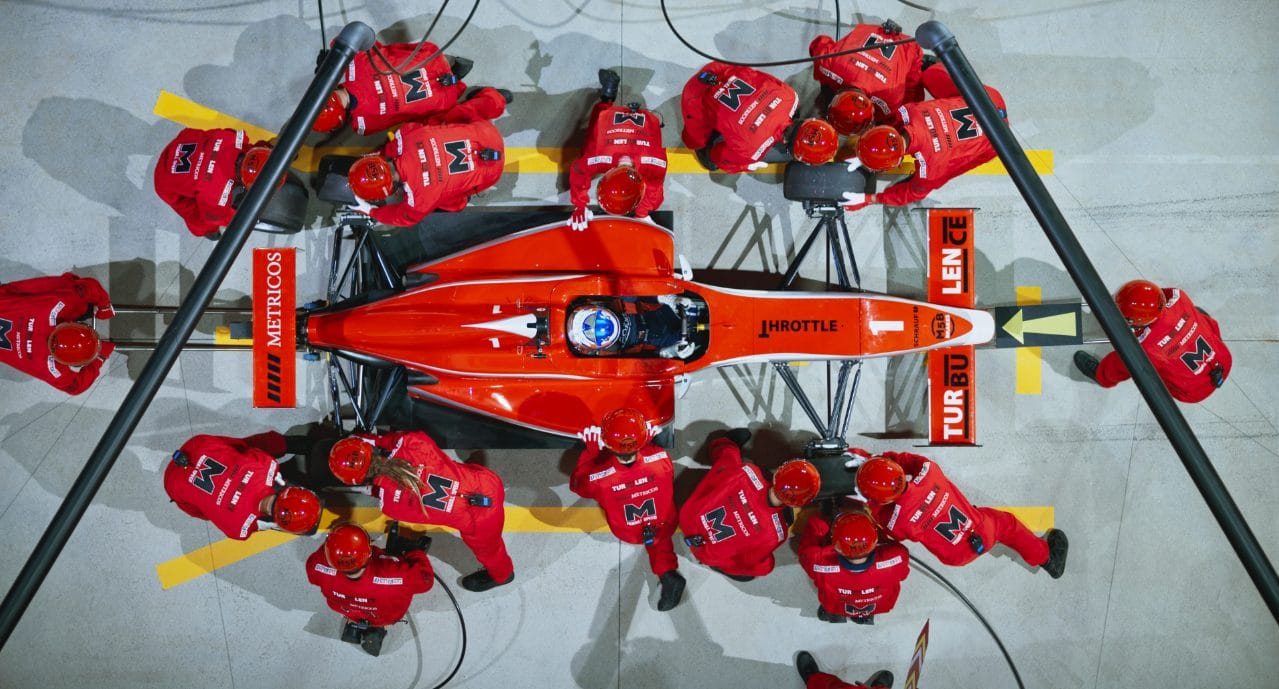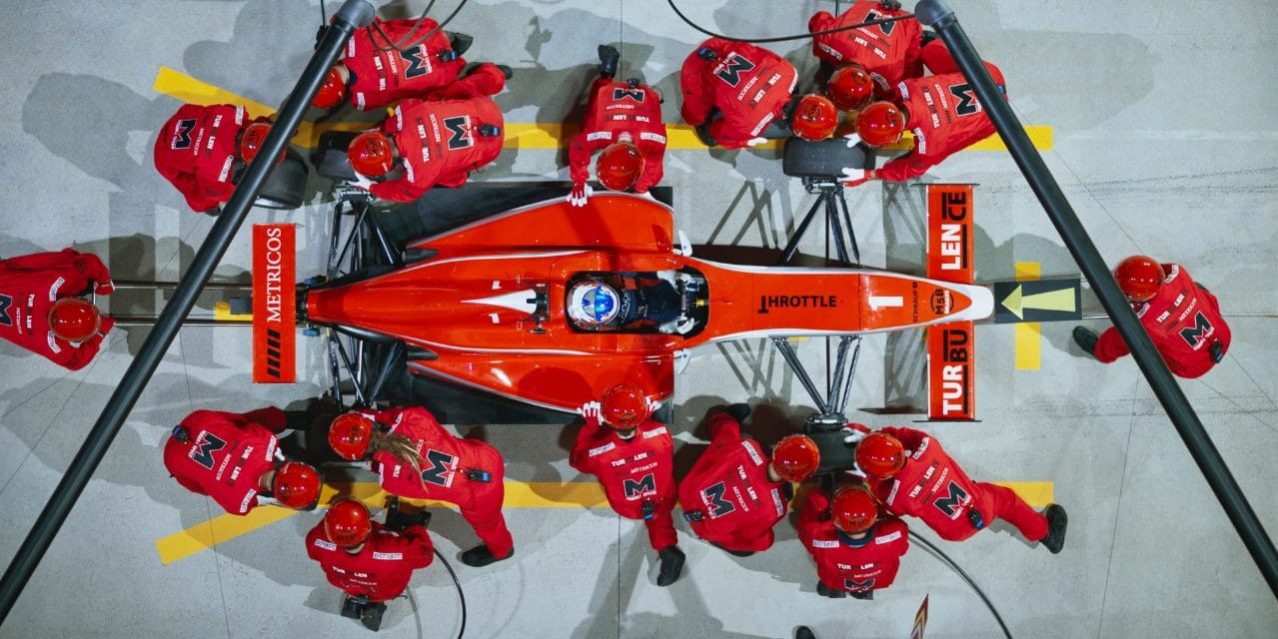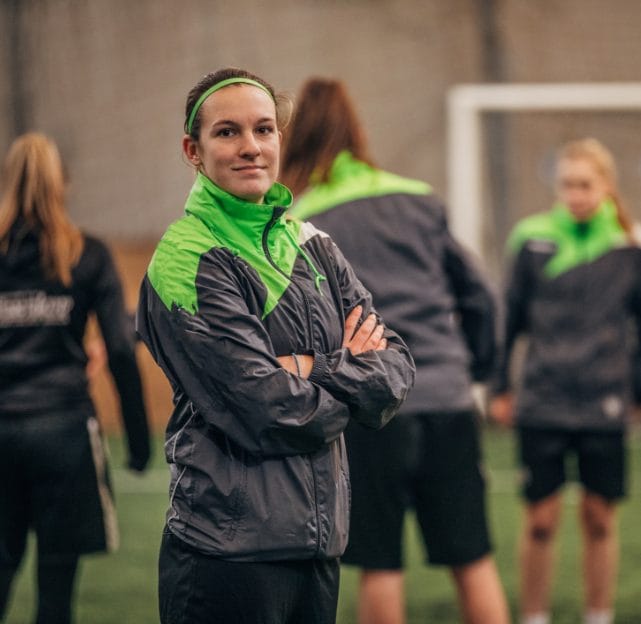I’ve been long fascinated by Formula 1 Motor racing, and in particular, the teamwork needed to win a race. The driver is only one element of a successful team – other people, like the designers and the mechanics play a role in a motor racing team’s success. And the team’s preparation is epitomized by the pitstops in the race – get it right, and a win can be possible, but get it wrong, and valuable seconds can be lost and sure success can turn into sure failure. Successful teams plan, practice and prepare – and in fact, most of the work that a Formula 1 team does is away from the racetrack, not at it. It’s the same with any professional sports team – the planning, the practice and the preparation are done away from the sports track and away from the playing field. It’s the unglamorous practice pitch where successful strategies are developed, unsuccessful strategies abandoned, good moves honed to perfection, and bad moves discarded.
Over the last 15 years, I’ve spent a number of summer (and winter) weeks climbing in the Alps. One particular friend comes to mind – I was on a number of expeditions with him over the years. He had a distinctive habit – the evening before a demanding day he’d spend an hour or so walking the start of the next day’s route and getting a view in his mind of the challenges that lay ahead. I think there is an invaluable lesson in his approach – we can all become apprehensive about future plans in business and the challenges we may encounter. Looking ahead, understanding what challenges may lie in our path and talking to others who may have walked the route before us can help ease unsubstantiated fears for our future. I’ve done that in climbing – I’ve walked up to the base of a climb the evening before and laid a hand on the rock – and I’ve also done that in business – I’ve read about the experiences of those who have been there, done that, and I’ve also asked them – Where did you go right? And where did you go wrong?
Preparation is not just about understanding what challenges lie ahead. It’s also about developing the skills in you and your team to enable you to cope with those challenges. I’m a firm believer in coaching and mentoring to help develop business leaders and teams. We all need the advice of someone who’s ‘Been There, Done That’, and we all need someone to constructively question what we are doing, and how we are doing it. Don’t think you can do that yourself – we need others to look at our actions from a different perspective, and give us a critical appraisal of where we should be heading and the steps we should be taking to get there. Keep in mind that suggested changes may seem small – but small changes over time can lead to large increases in productivity and results.
And its not just about having a business coach and an experienced mentor. You and your team will need to practice the skills and strategies suggested by your advisor. I have a friend who goes skiing every year, and every year he takes ski lessons for the week. But never improves! Why? Because he never practices the skills he has learnt in his lesson. He feels safe with an instructor, and feels comfortable within the structure of a ski lesson. But you’ve gotta take the skills you have learnt in a lesson, step outside your comfort zone, and learn to practice and apply your learnt skills in a real environment. Remember that Formula 1 team? – success in pitstops is about practice away from the track, and fine tuning those lessons learnt so that actions become automatic when the moment is critical. And think about professional soccer or rugby teams – they practice the moves so that when the right opportunity arrives, everyone on the team understands intuitively what should happen next and what moves should be made. In business it’s about practicing skills – sales skills, communications skills and teamwork skills, and making sure that when a selling opportunity arises, you and your team are ready and act in unison.
Getting the right equipment is also part of preparation. Think back to those Formula 1 teams. They have less than 30 seconds in a pitstop to do what they need to do. No professional team wants equipment unsuited to the task at hand. No professional team wants equipment that might break down just at a critical moment. If that happens, an opportunity to win immediately becomes a potential and probable failure. It’s the same in business – you get one opportunity to sell to a client, so you need equipment that you know with confidence is going to work right the first time and every time. And its not just about investing in the right equipment – you’ve got to invest in training for your team so that they know how to use the equipment properly and use it to its maximum efficiency. When a selling opportunity arises you and your team need to be ready to act with confidence and exploit the opportunity to its maximum potential.
So we need to plan, practice and prepare. But no matter how much we plan for the future, unexpected events can shape our private and business lives. Who would have known in January 2020 that we were going to be hit by the COVID-19 pandemic, and that we were all going to spend a significant proportion of the next 2 years working from home? A friend of mine tells the story of how, when climbing a mountain, a boulder came tumbling down from above and missed him by inches. As he says ‘We don’t know what’s going to hit us in life, and we don’t know what lies ahead in business’. So external events like COVID-19, changing financial markets and international politics can shape our lives and adversely effect our business plans, but we can also be negativity effected by unexpected issues within our own businesses. We can be too ambitious, we can misjudge the opportunities or we (and our team) can simply make mistakes.
So no matter how good our planning, no matter how much we practice, and no matter how much time we take to prepare, unexpected events can occur and things can go wrong, and we can find that we are facing FAILURE. But failure can be seen from two perspectives – one negative and one positive. If you view your experiences from a negative viewpoint it has a description – ‘I have failed!. But if you view your experiences from a positive perspective it has an entirely different description – ‘I have gained valuable experience!’
So remember to plan, practice and prepare. And remember no matter how good your planning, your practice and your preparation, failure can come your way. But if it does, look at it from a positive viewpoint, and view it as the gaining of experience. And experience is the most valuable asset in the world!



